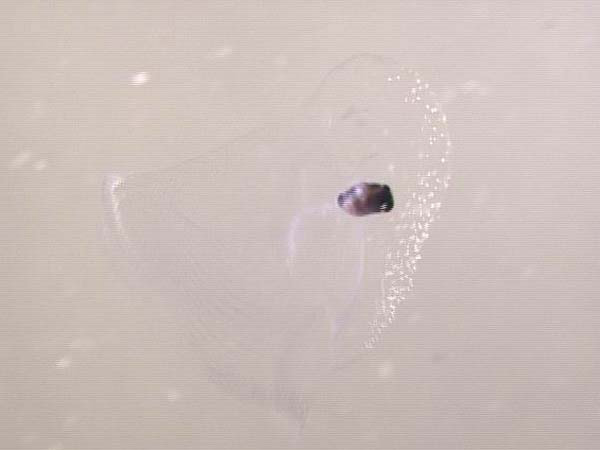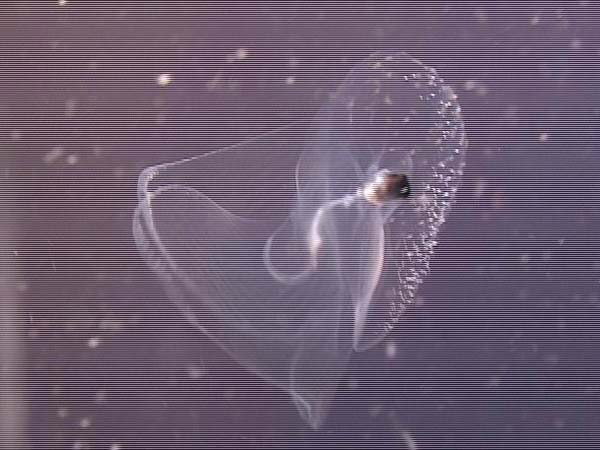

NOTICE: This page is being retained for reference purposes only and is no longer being updated or maintained.

A mid-water gelatinous mollusk seen using polarized light. The two images are successive video frames taken with a modified camera that, for alternate frames, uses and then removes a polarizing analyzer filter. In the optimum position, both the darkened field behind the animal and the animal's own polarizing body tissue reveal it to the watchful eye. In common with many mid-water animals, Corolla uses transparency as a means of camouflage, where there is no background. Using polarizing vision, we can make this animal re-appear and, if we were of a mind to do so, eat it or mate with it. Image courtesy Justin Marshall.
Related Links
